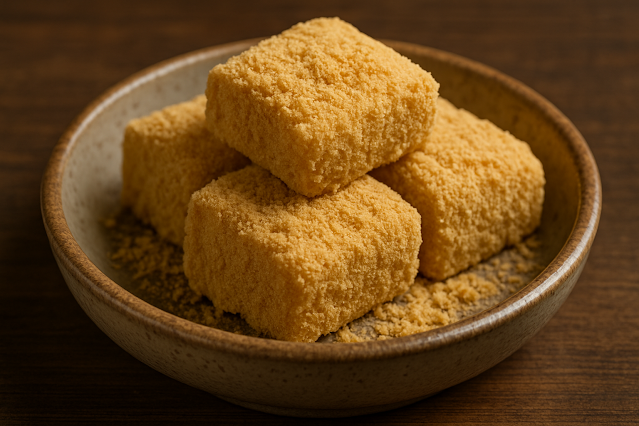⭐ 추천글 (Editor’s Picks)
🇰🇷🍡🥢 7 Traditional Korean Snacks You Must Try: Makgeolli, Songpyeon, Injeolmi, Gangjeong & More
- 공유 링크 만들기
- X
- 이메일
- 기타 앱
Explore the authentic taste, history, and preparation of Korea’s beloved traditional snacks — from rice cakes to fermented drinks.
🇰🇷 Traditional Korean Snacks You Must Try: From Makgeolli to Gangjeong
Discover the flavors and stories behind Korea’s beloved traditional treats — a perfect guide for K-Food lovers worldwide.
🍶 1. Makgeolli (막걸리) – Korean Fermented Rice Wine

🟢 Origin & Meaning
Makgeolli is Korea’s oldest alcoholic drink, a lightly sparkling milky rice wine enjoyed since the Goryeo Dynasty. It symbolizes community and harmony.
🟢 Key Ingredients: Glutinous rice, nuruk (fermentation starter), water
🟢 Authentic Recipe
- Steam glutinous rice and let it cool.
- Mix crushed nuruk and water.
- Combine with rice and ferment for 7–10 days at ~20°C.
- Filter before serving.
🟢 How to Enjoy: Shake gently and serve cold with pajeon or kimchi.
🟢 For Foreigners: Subtly sweet and tangy, 6–8% alcohol — probiotic-rich. Try the Makgeolli Korean Rice Wine Kit and Makgeolli cup set.
🍡 2. Songpyeon (송편) – Half-Moon Rice Cakes for Chuseok

🟢 Origin & Meaning
Eaten during Chuseok, symbolizing abundance and gratitude.
🟢 Key Ingredients: Rice flour, sesame, honey, red beans, chestnuts, pine needles
- Prepare dough and fillings.
- Shape into half-moons and steam on pine needles.
Think of Songpyeon as “mochi with meaning.” Try Korean Rice Cake Tteok or Korean Rice Flour.
🍙 3. Tteok (떡) – A Colorful Variety of Rice Cakes

🟢 Origin & Meaning: Ceremonial food for special occasions.
🟢 Key Ingredients: Rice flour, beans, jujube, honey
Try Apexy Korean Rice Cake for an authentic gluten-free experience.
🍥 4. Injeolmi (인절미) – Roasted Soybean Rice Cake

🟢 Origin & Meaning: Royal dessert turned comfort snack.
DIY tip: Use Organic Glutinous Rice Flour to recreate Injeolmi at home.
🍚 5. Sikhye (식혜) – Korean Sweet Rice Punch

🟢 Meaning: Served after feasts as a digestive. Try Paldo Vilac Sikhye for a canned version.
🍂 6. Sujeonggwa (수정과) – Cinnamon-Ginger Punch

🟢 Key Tip: Try Paldo Vilac Soojeonggwa — authentic flavor in cans.
🍘 7. Gangjeong (강정) – Crispy Puffed Rice Clusters

🟢 Origin: Festive and symbolic of celebration. Try Donggangmaru Rice Crispy Squares for a modern version.
📌 Final Thoughts
From the gentle sweetness of Sikhye to the nutty crunch of Gangjeong — Korean traditional snacks are edible history and culture. Whether you’re visiting Korea or exploring K-Food from abroad, these treats are a must-try.
*Some links in this post are affiliate links. We may earn a small commission on purchase, at no additional cost to you.*
- 공유 링크 만들기
- X
- 이메일
- 기타 앱
댓글
댓글 쓰기
소중한 의견을 댓글로 남겨주세요! (We’d love to hear your thoughts in the comments!)